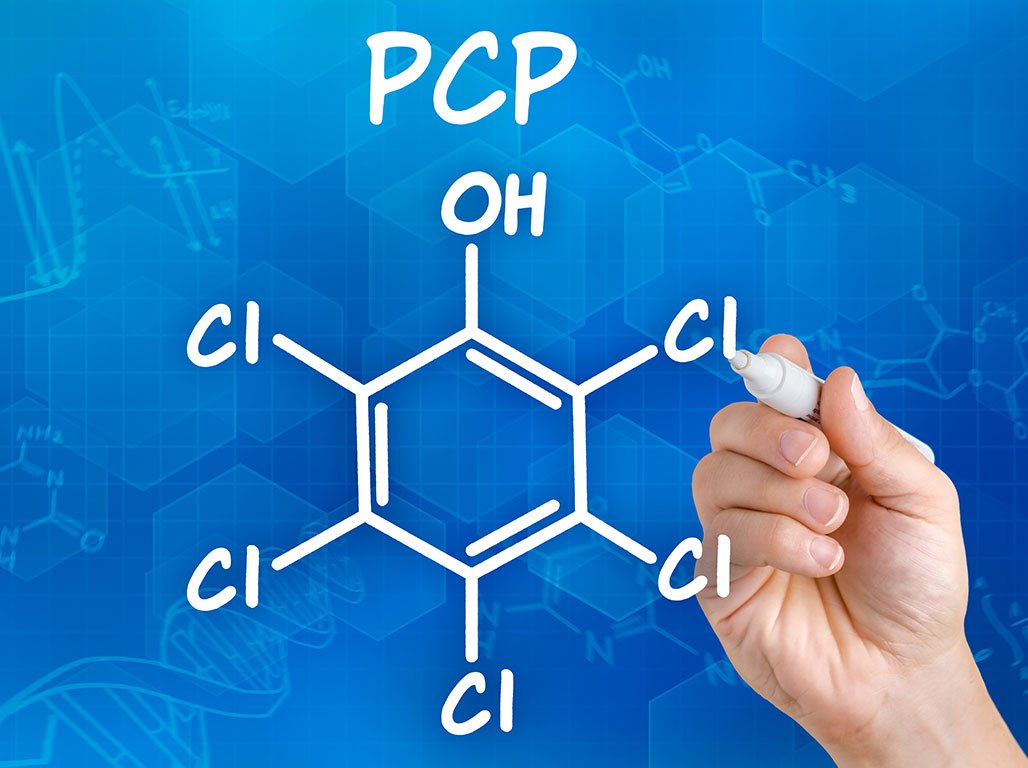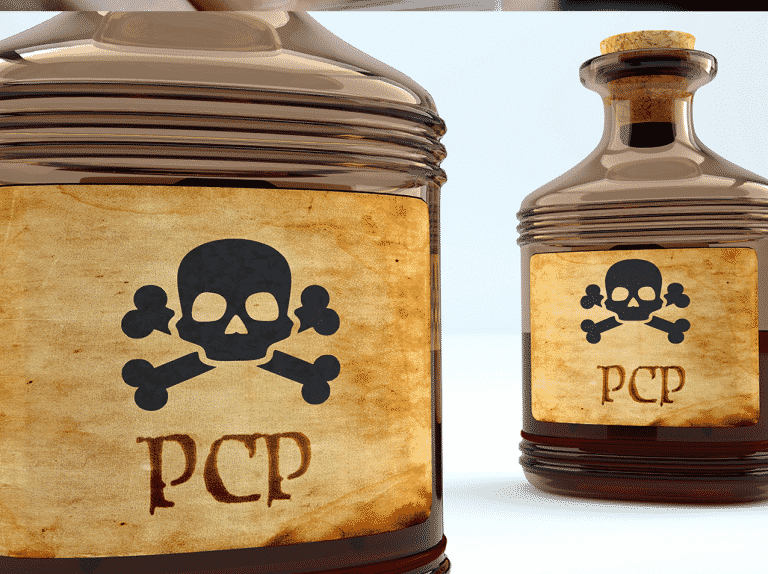PCP medical abbreviation is a man-made, dissociative drug, not an hallucinogen like LSD
You will be surprised to discover that PCP was originally developed as an intravenous medical anesthetic. The PCP meaning is phencyclidine. It’s use was discontinued in humans in 1965 because of its troubling neurotoxic side effects. It is now illegal in the United StatesIt, a Schedule II controlled substance. Ketamine, an anesthetic used for surgery and painful procedures, was developed instead, and it is structurally like PCP.

Side effects of PCP include hallucinations and violent behavior
The danger of PCP is that it ends to cause hallucinations, distorted perceptions of sounds, and violent behavior. The effects of dissociative drugs like PCP include feeling detatched from the environment and self. In its pure form, PCP is a white crystalline powder that dissolves easily in water or alcohol. As a recreational drug, it is typically smoked, but may be taken by orally, snorted, or by injection.
It has a distinctive bitter, chemical taste. On the illegal drug market, PCP contains several chemicals causing the color to range from a light to darker brown with a powdery to a gummy consistency.
The impact of withdrawal
People who halt regular use of PCP experience cravings, increased appetite, headaches, sleepiness, depression, and sweating. These are common withdrawal symptoms. Studies continue to look at options for drug treatment for PCP dependence; however, there are no specific approved treatments for PCP abuse and addiction. Patients may need to be hospitalized and receive behavioral treatments to address abuse issues with PCP.
The difference between LSD and PCP
Some hallucinogenic drugs come from natural sources, but others are man-made. LSD, or “acid,” comes from an acid found in a fungus. The fungus is known as ergot and grows on various types of grain. PCP is a man-made, dissociative drug.
LSD vs PCP can be as simple as knowing that LSD is a hallucinogen and PCP is a dissociative drug.
PCP is not categorized firmly as a hallucinogen because it can also work as a pain killer or stimulant. However, it can still cause hallucinations and effects like hallucinogens. Acid’s short-term effects usually begin between 20 and 90 minutes from taking the drug and can last up to 12 hours.
The short-term effects of PCP generally start in a few moments and can last up to several hours; sometimes the effects continue for several days.
LSD effects include increased heart rate, intense emotions and sensory perception, nausea, and misconception of time. Long-term effects include persistent psychosis and hallucinogen perception disorder. PCP effects include disorientation, lack of coordination, numbness, hallucinations, and increased body temperature and heart rate. Larger doses of PCP can result in seizures, psychotic behavior, amnesia, panic attacks, difficulty breathing, and anxiety.
Risk of overdoses is much higher with PCP, and overall, considered the most dangerous of the two drugs.
PCP in Disguise
In the time it has been on the illicit drug scene, PCP has been sold under the guise of a number of other drugs, including THC, methamphetamine, mescaline, and LSD. Today we can add MDMA and formaldehyde to that list.
PCP’s Effects on the Brain
PCP disrupts the functioning of receptors for the neurotransmitter glutamate, which plays a major role in the perception of pain as well as in learning, memory, and emotion. It also influences the actions of the neurotransmitter dopamine, which causes the euphoria associated with drug use.
PCP and superhuman strength
Despite its reputation in the media as a drug that causes bizarrely violent behavior and gives users superhuman strength, research does not support the idea that PCP itself is the cause of such behavior and strength. Instead, those who experience violent outbursts while under the influence of PCP often have a history of psychosis or antisocial behavior that may or may not be related to their drug abuse. Additionally, someone under the influence of PCP is often unaware of the dangers and limitations they face, and may react to physical confrontations in a way that makes it seem as though they have extraordinary muscular strength.
Overdose and Death
PCP overdose deaths may occur after taking a large dose, though many PCP related deaths result from delusions and other psychological consequences of the drugs use. There have been reports of death due to accidental drowning, leaping from high places, and motor vehicle accidents in addition to violent episodes of self-mutilation, suicides, and homicides.
Save





















